Grilled turkey legs take me straight back to my Southern roots: big, smoky, juicy cuts of meat that feel like a celebration all on their own. Growing up, turkey legs weren’t just for the holidays; they were for cookouts, fairs, and family gatherings. With my Southern background, I know the power of smoky flavor and proper seasoning, and I’ve spent nearly a decade sharing my recipes that millions have come to know and love. My recipe delivers perfectly charred drumsticks with tender meat every time.
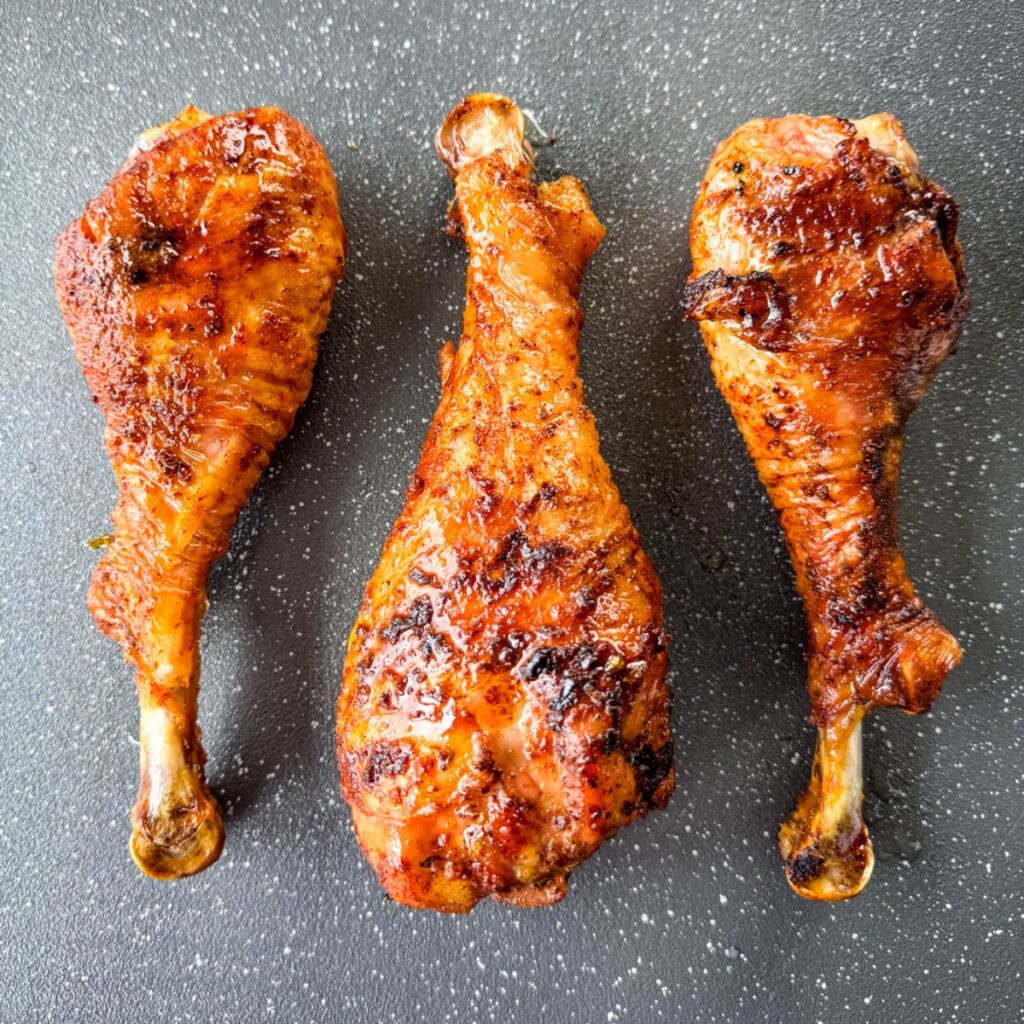
Grilled Turkey Leg Ingredients
- Turkey Legs: Most grocery stores, including large chains and smaller specialty markets, carry turkey legs. Look for them in the poultry section or ask a butcher for assistance. At my local grocer I notice them year round, some stores may only carry them around certain holidays. Always ask if you’re in doubt.
- Smoked Paprika
- Garlic Powder
- Onion Powder
- Oregano
- Salt and Pepper
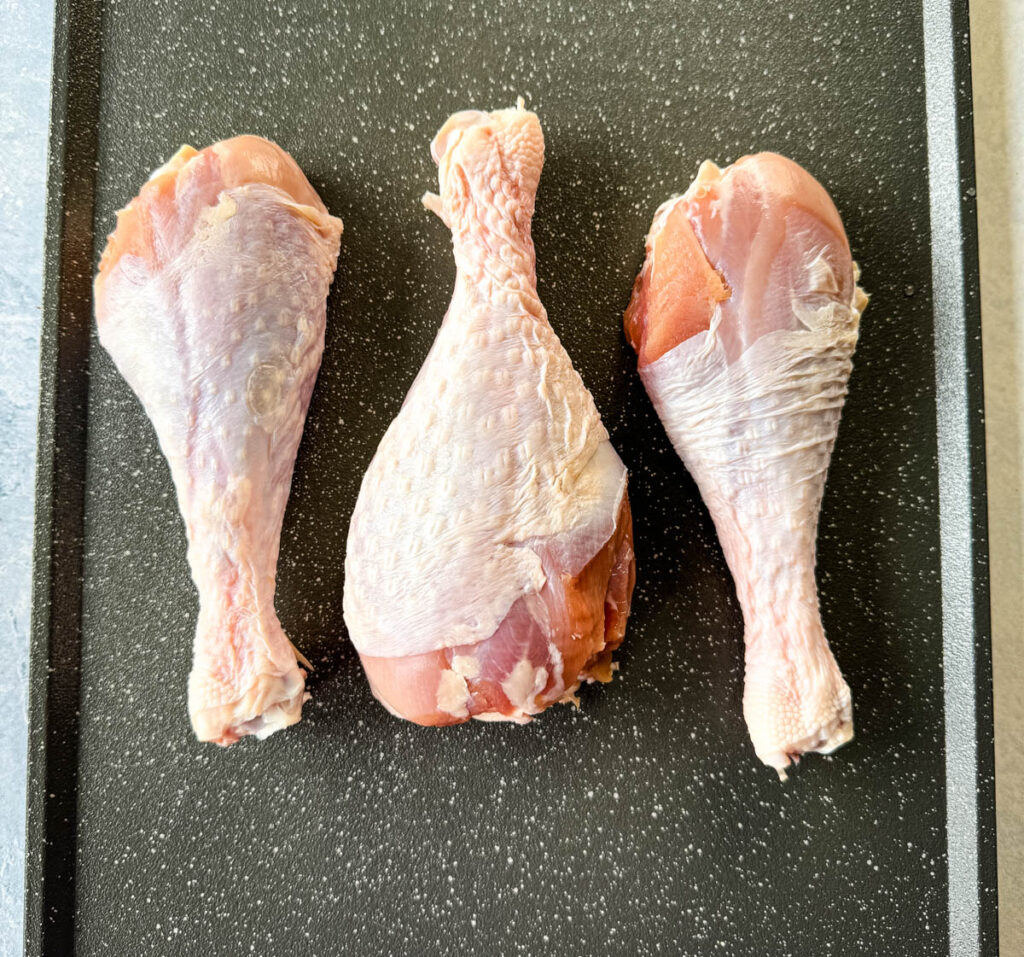
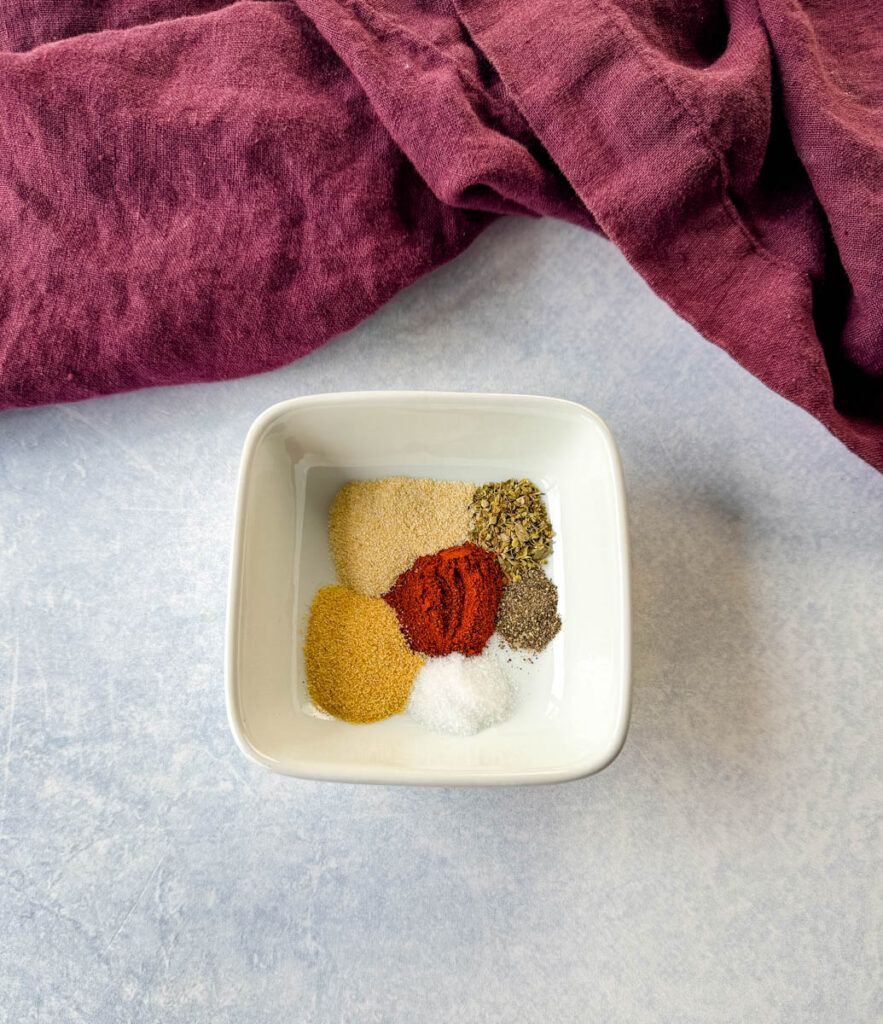
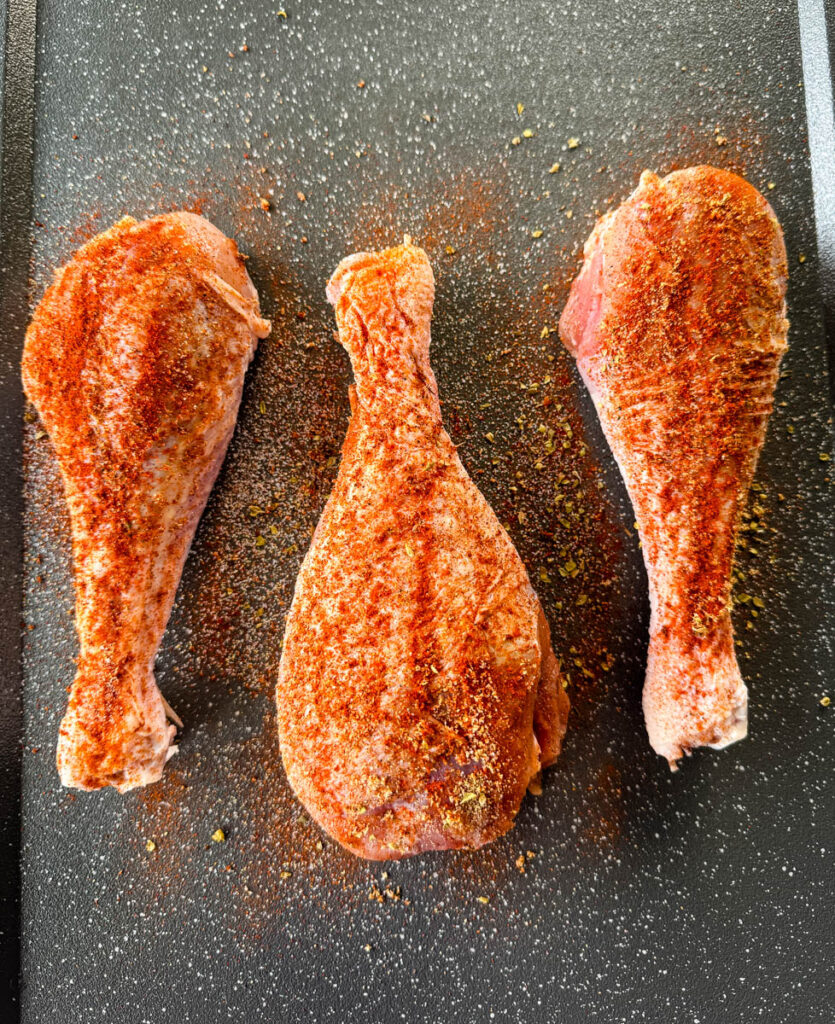
How to Make Grilled Turkey Legs
Detailed measurements and full instructions can be found in the recipe card at the bottom of this post.
- Prep the turkey legs. Pat the turkey legs dry with paper towels so the seasoning sticks and the skin crisps up nicely.
- Season. In a small bowl, mix together smoked paprika, garlic powder, onion powder, oregano, salt, and black pepper. Rub the spice blend all over the turkey legs, making sure to coat every side.
- Cook. Preheat the grill to medium heat. Cook the turkey legs over indirect heat, turning occasionally, until they hit an internal temperature of 165°F.
- Rest and serve. Let the turkey legs rest for 5–10 minutes before digging in. This locks in the juices and keeps the meat tender.
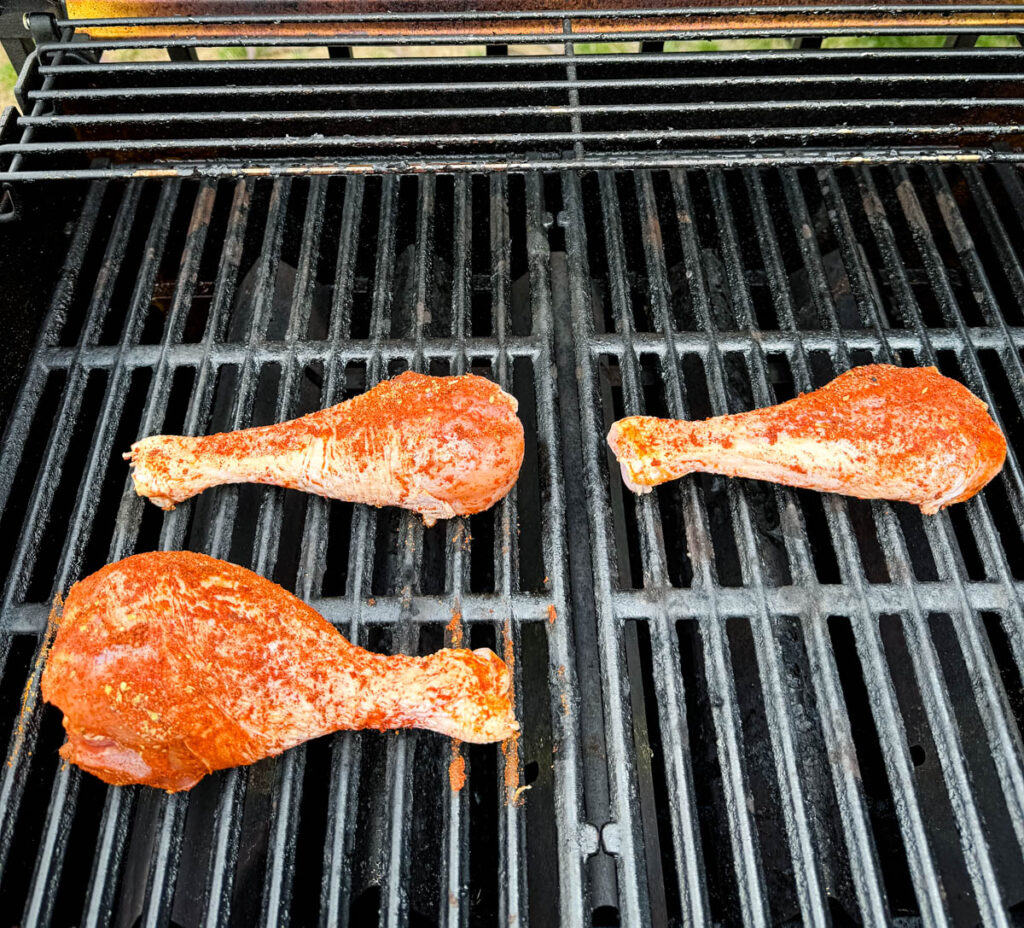
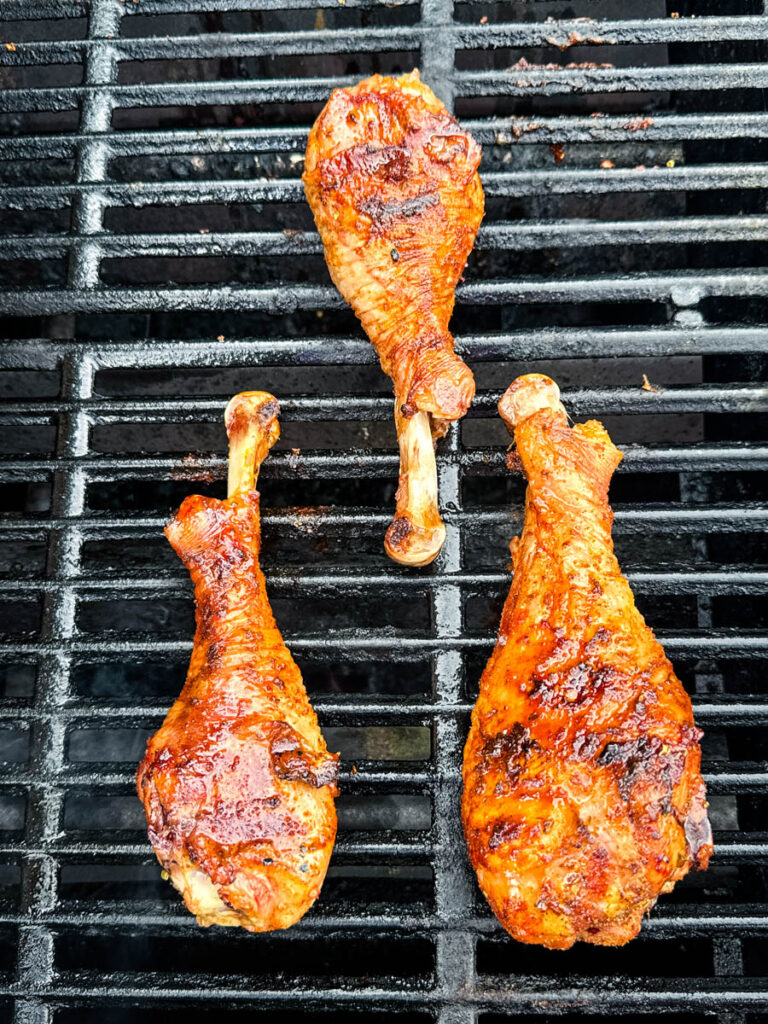
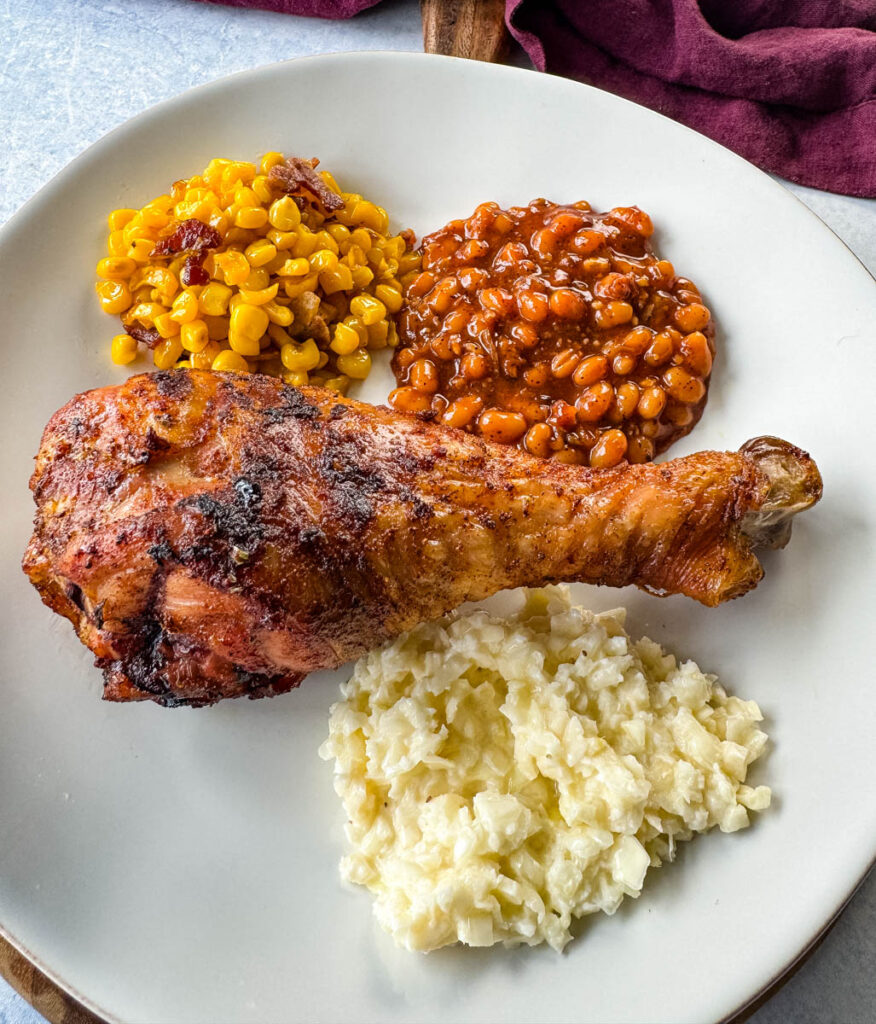
Want to save this recipe for later?
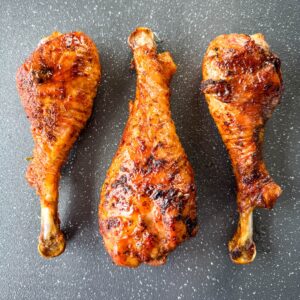
Grilled Turkey Legs
Want to save this recipe for later?
Equipment
Ingredients
- 3-4 pounds turkey leg drumsticks
- 1-2 teaspoons smoked paprika
- ½ teaspoon garlic powder
- ½ teaspoon onion powder
- ¼ teaspoon ground oregano
- salt and pepper to taste
Instructions
- Preheat the grill to 275-300 degrees.
- See the notes below if you plan to inject the turkey legs or brine the turkey in advance.
- Sprinkle the spices onto both sides of each turkey leg. Rub the spices in to penetrate the meat. Ensure the turkey is fully coated and add additional spices if necessary.
- Place the turkey on the grill and grill for 90 minutes or however long it takes to reach an internal temperature of 175 degrees, use a meat thermometer. Be sure to place the turkey on the side of the grill with indirect heat to ensure slow cooking.Flip the turkey legs every 30 minutes.Cook time will vary based on the size of your turkey legs so be sure to watch them.
- Remove the turkey legs from heat and allow the meat to rest for at least 15 minutes before serving.
Notes
Nutrition
Nutrition Data
Macros are provided as a courtesy and should not be construed as a guarantee. This information is calculated using MyFitnessPal.com. To obtain the most accurate nutritional information in a given recipe, you should calculate the nutritional information with the actual ingredients used in your recipe, using your preferred nutrition calculator. You are solely responsible for ensuring that any nutritional information provided is accurate, complete, and useful.
How to Season the Turkey Legs and Variations
I use a combination of smoked paprika, garlic powder, onion powder, and oregano. Here are some other amazing options:
- Store Bought Poultry Rub
- BBQ Rub and Seasoning
- Cajun Seasoning
- Creole Seasoning
- Lemon Pepper Seasoning
- Maple Bourbon
- Italian Herb
- Honey Mustard
Charcoal Grill vs Gas Grill
You can use either a charcoal grill or gas grill for this recipe. I often use a gas grill. My grill has 3 burners. To keep the grill from overheating, I only use 1 burner. I also place the turkey legs on the opposite end of the grill than where this burner is located. That way, the turkey receives indirect heat and can cook low and slow.
Some folks swear by a charcoal grill for turkey legs because it gives you that deep, smoky flavor you just can’t fake. Gas or pellet grills get the job done, but charcoal brings that classic backyard taste that reminds you of cookouts and fairs.
Gas grills are all about convenience. Push a button, set your temp, and you’re ready to cook without the mess of charcoal. They heat up fast, give you easy temperature control, and cleanup is a breeze. Just don’t forget to check your propane, nothing kills the mood like running out right when you’re ready to grill.
Frequently Asked Questions and Recipe Pro Tips
Total cook time will vary based on the size of your drumsticks. Larger, meatier legs will require a longer cook time. Keep this in mind if you have an unevenly sized bunch. You may need to pull the smaller ones off first.
They will typically need to grill for 60-90 minutes. Again, they may take longer if you have large drumsticks.
The skin should be golden brown and crispy. The meat should be tender and pull away from the bone.
Insert the thermometer probe into the thickest part of the turkey leg, avoiding the bone. They are safe to eat when they reach an internal temperature of 165 degrees, but for super tender turkey, 175 degrees is optimal.
Feel free to slather these with your favorite BBQ sauce flavor. You can do this 10-30 minutes before you pull them from the grill if you want the BBQ sauce to penetrate or you can add it before serving.
Let those turkey wings rest for about 10-15 minutes before you dig in. This gives the juices time to settle back into the meat so it stays moist and flavorful. It also evens out the temperature inside, so every bite is tender and cooked just right.
You can store leftovers tightly sealed and covered in the fridge for 3-4 days.
To reheat turkey, keep it low and slow so it doesn’t dry out. In the oven or air fryer, cover with foil and warm at 325°F. On the grill, use indirect heat and cover until heated through. On the stovetop, add a splash of broth or water, cover, and warm gently. The microwave works in a pinch, just heat in short bursts and check often so it stays moist.
You can freeze them for 2-3 months wrapped and sealed or tightly covered. They can be stored in the freezer for longer periods, it's best to use them within this timeframe to ensure optimal taste and texture.
Brining before grilling is not strictly necessary, but it can enhance their flavor and juiciness. Brining involves soaking the turkey legs in a solution of water (4 cups), salt (1 tablespoon), sugar (¼ cup), and spices (noted in the recipe card below). Submerge the turkey legs in the brine and refrigerate for several hours or overnight. The salt in the brine helps the turkey legs retain moisture during cooking, resulting in juicier meat.
I often inject mine using a seasoned butter marinade. This saves time because I don't have to let them sit overnight in the fridge. Injecting adds moisture directly into the meat, which can help prevent it from drying out. I use this injection marinade. I use 1 ounce per pound. Weigh each leg and measure accordingly.
Pair With These Recipes
Southern Coleslaw
Vinegar Based Coleslaw with No Mayo
Soul Food Potato Salad
Potato Salad with Bacon
Smoked Mac and Cheese
Southern Baked Beans
Broccoli Salad with Bacon
More Turkey Leg Recipes
Baked Turkey Legs
Air Fryer Turkey Legs
Slow Cooker Crockpot Turkey Legs
Stuffed Turkey Legs
Smoked Turkey Legs


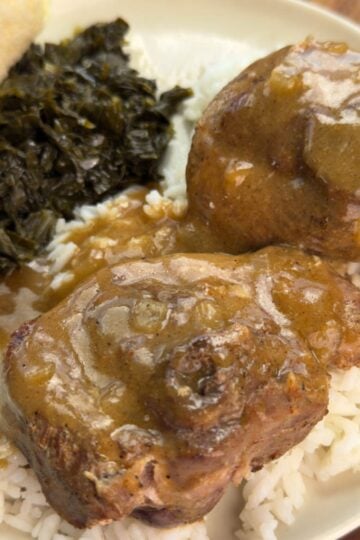
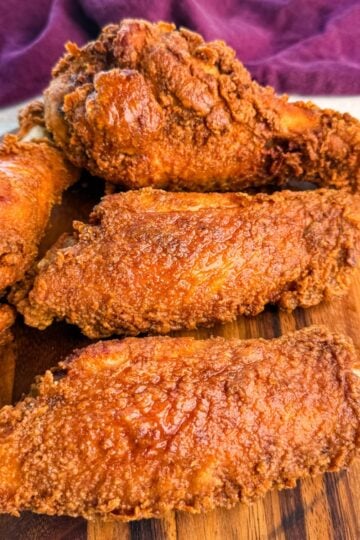
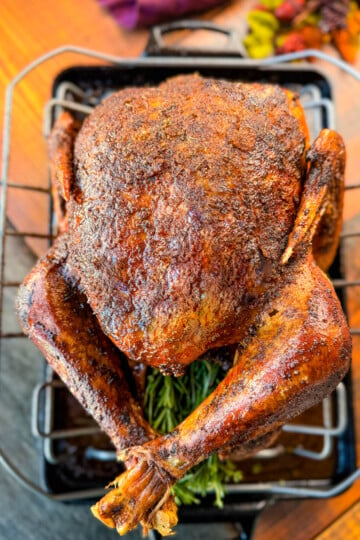
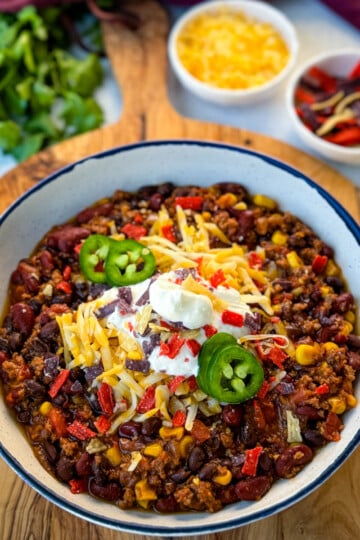
Clara says
I've never grilled them before, but I knew you had to have a recipe! I love your air fryer and baked turkey legs and these did not disappoint. I will be making these again in November no matter how cold it gets! This is my favorite way to eat them now.
staysnatched says
Yay! I'm glad you enjoyed them.